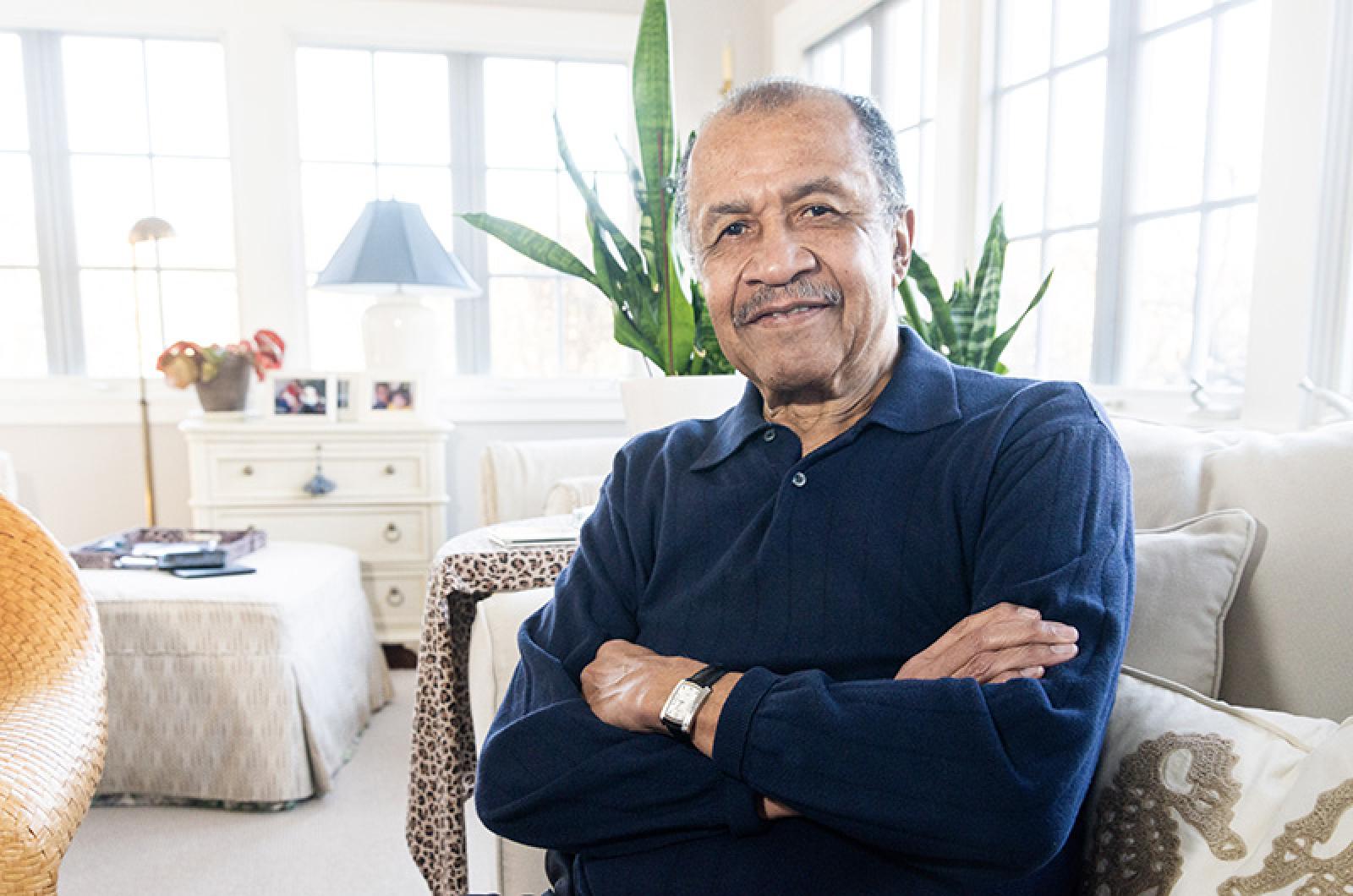When Wayne Budd was growing up in Springfield his father wanted him to be a dentist.
“We had black dentists in our city and they seemed to be doing well,” Mr. Budd said of his father’s encouragement. “He said ‘you should be a dentist,’ because there was a pathway.”
Instead Mr. Budd, 80, chose his own path, turning to the law for a career and becoming a trailblazer in his profession. In 1980 he was named president of the Massachusetts Bar Association, becoming the first person of color to head a state bar association. In 1989, he was appointed U.S. Attorney for the district of Massachusetts, making him the top prosecutor in the state and the only black U.S. attorney at the time.
On a recent afternoon in a sitting room in his East Chop home, which he and his wife Jacqui have owned since 1987, Mr. Budd looked back on his career with pride.
“Professionally I have no regrets,” he said.
Throughout his career, Mr. Budd also helped break down barriers for other lawyers of color. In the late 1960s, soon after his legal career began, Mr. Budd co-founded the firm Budd, Wiley & Richlin as a way to provide opportunities for lawyers of color in Boston. It was a small firm of roughly 15 people and the majority of the founding partners were black. It became a launching pad for Mr. Budd’s career and people who looked like him, he said. His colleagues went on to become general counsels, managing partners at large corporate firms and district attorneys.
“I’m proudest of the fact that the firm, during the time it was in existence, did very well, but even more so the fact that so many of the people in the firm went on to do some significant things,” Mr. Budd said. “We’re all very close friends, like family.”
He said he enjoyed the independence of being a United States attorney.
“It’s like being a ship’s captain at sea. You’re given certain guidelines…but within that, you can decide what your priorities are going to be, you can decide how you carry out your mission.”
During Mr. Budd’s tenure, cities around the country were plagued by drug abuse, poverty and gun violence, he said, and Massachusetts was no exception. Community members tired of the violence in their neighborhoods asked Mr. Budd for help. He made it his mission to prosecute high-level drug dealers, including Darryl Whiting, a notorious gang leader who boasted he would never be caught. He lured children with gifts to bring them into the drug trade, Mr. Budd said.
“There was a major magazine article in which he said, ‘nobody can touch me, I’m God,’’’ Mr. Budd said. “Well, we figured out a way to do it.”
Mr. Whiting was convicted of running a 100-person drug ring and received a life sentence in 1990. At the trial, an undercover agent said Mr. Whiting preyed upon drug-addicted mothers.
“It was pretty satisfying, because we did some good,” Mr. Budd said.
In 1992, he was appointed Associate Attorney General in the Justice Department. Mr. Budd said that it was William Barr, serving his first stint as Attorney General at the time, rather than President George H. W. Bush, who went to bat for him.
“I haven’t worked with Mr. Barr in many, many years, but when I worked with him, he was just fine,” Mr. Budd said. “He wasn’t the guy that I observe from a distance [now].”
At the Justice Department, Mr. Budd oversaw the federal prosecution of police officers caught on camera beating up Rodney King in Los Angeles in 1991. The officers were acquitted in a state trial and it was Mr. Budd’s decision to try them in federal court. It wasn’t an easy decision, he said.
“Suppose we had not brought that case? People would be clamoring ‘why aren’t the Feds in here?’” he said. “Suppose we brought it and lost–did you stir up more trouble? Did you hit the wasp’s nest and cause a hullabaloo? So it was kind of tricky.”
In the end two of the four officers were found guilty. Recalling that time, Mr. Budd deferred credit for the two convictions to the trial lawyers.
“The people who did the real work should get the real credit,” he said.
After his time in government, Mr. Budd returned to private practice. Then in 2020 then-Boston Mayor Marty Walsh asked him to lead a task force to recommend reforms to the Boston Police Department.
“We had a good team, a good group of people that the mayor appointed,” he said.
Mr. Budd has three daughters: Keri, Kristy and Kimberly. Kimberly Budd has picked up the torch from her father: in 2020 she was appointed the chief justice of the Massachusetts Supreme Judicial Court, the first black woman to hold that position.
“When I became a lawyer, many years ago now, over 50 years ago, that court was made up of old white men,” he said. “Now to see Kim up there in charge of that court…it’s just a great feeling of sort of completion for me. To see her carry it on to the next level is phenomenally gratifying.”







Comments (31)
Comments
Comment policy »